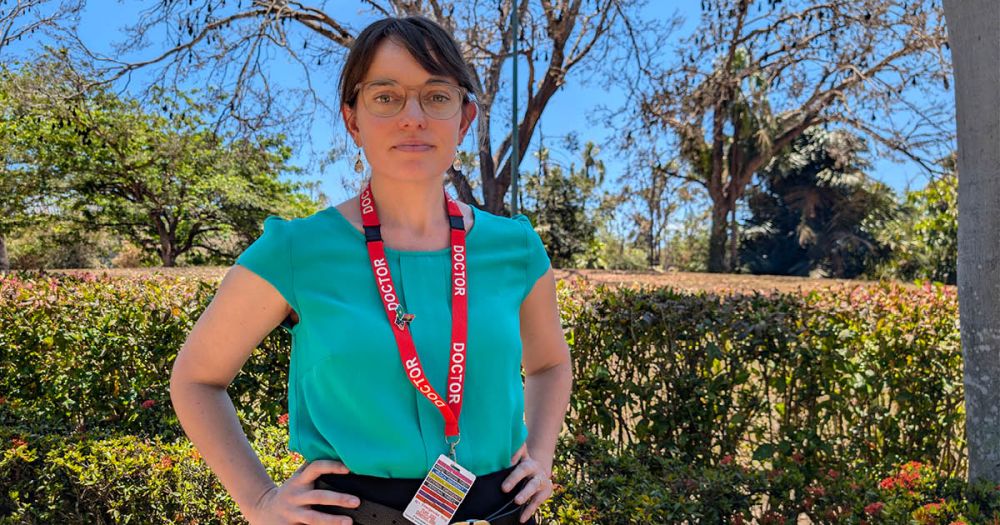Health expert warns to 'leave bats alone' after deadly virus scare
Published: 27 October 2025

The Townsville Public Health Unit has urged the north Queensland community to avoid handling flying foxes following cases of people being bitten or scratched.
Over the last few weeks several residents across the Townsville and Mackay regions have required medical assessment for potential exposure to Australian Bat Lyssavirus (ABLV) after coming into contact with a flying fox.
Acting director Dr Kate Murton said most of the times it had come after people had come across the animal in their own backyards.
“It’s flying fox breeding season, and we are seeing more of the animals becoming tangled in fences, netting, or barbed wire while on the move,” Dr Murton said.
“People are attempting to help the distressed animal, which is when they get bitten or scratched. With recent cases, we have seen flying foxes scratch through clothing and bite through gloves.”
Australian Bat Lyssavirus is a rabies-like virus that can be transmitted to humans. While infections are rare, the virus is fatal once symptoms develop.
“ABLV is one of the most lethal viruses we know of. It can cause paralysis, delirium, convulsions, and ultimately death,” Dr Murton said.
“Since 1996, four people have died from ABLV, with the latest death in northern New South Wales last year. Although it is rare, we cannot afford to become complacent.
“Anyone who has been bitten or scratched by a flying fox must seek immediate medical attention. Treatment involves a rapid course of vaccinations to prevent the onset of this fatal disease.”
Dr Murton said the increased activity had led to a higher chance of encountering a sick, injured, or young bat on the ground or caught on an obstacle.
“The key message is simple; leave bats alone. Do not touch a bat under any circumstances, whether it is dead or alive, an adult or a pup,” she said.
“Do not attempt to help the animal.
“Bats can bite and scratch through thick gloves and towels, and it is best left to the trained and vaccinated wildlife carer for help.
“If you have been bitten or scratched, then immediately and thoroughly wash the wounds with soap and water, use antiseptic solution, and go directly to the emergency department for post-exposure treatment.”
For more health information, phone 13 HEALTH.

